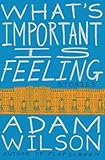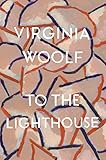Adam Wilson’s second novel, Sensation Machines, opens on Michael and Wendy, a couple desperate to eradicate their home of bedbugs, and from there the novel quickly swoops and swarms to include a murder, a corporate conspiracy, a world-changing invention, and the rampant disquiet of global economic pressures. It’s a novel based in relationships that sprawls to a worldly view.
Wilson’s debut, Flatscreen, showcased an intrepid youth fighting through a haze of drugs and dashed sexual hopes, and his story collection, What’s Important Is Feeling, followed a host of pseudo-adults through tough though often hilarious moments. Sensation Machines likewise deals out its fair share of sad people in sad existences, but it also uncovers how much our society informs our behavior, how inundated we are by technology, and how beset we are with problems of our own making.
 Wilson’s work has appeared in The Paris Review, Tin House, and The Best American Short Stories. The brilliance of Sensation Machines is in the author’s smooth and utterly believable worldbuilding, even if the future represented here is one to fear rather than embrace, one to work against instead of one to apathetically claim.
Wilson’s work has appeared in The Paris Review, Tin House, and The Best American Short Stories. The brilliance of Sensation Machines is in the author’s smooth and utterly believable worldbuilding, even if the future represented here is one to fear rather than embrace, one to work against instead of one to apathetically claim.
The Millions: One of the first elements that struck me about Sensation Machines was the worldbuilding risks you took, blending contemporary life with an invented future. In the novel, people still ride around in cars, but baristas are robots and food is delivered by drones. How tough was it to ride that line, to invent a future setting while staying within a realm that is so (frighteningly) close to us?
Adam Wilson: It was a big challenge, and one that quickly became more challenging with Trump’s election in 2016. I started working on Sensation Machines in 2011, and my original idea was to write a novel set around the 2008 Wall Street crash. The problem was that the more research I did, the less interested I became in writing something grounded in such a specific historical moment. Reimagining the book in a near-future setting felt freeing; I liked being able to make stuff up. But of course, then the world started changing very rapidly, and it became increasingly more difficult to imagine what that near-future might look like. I ended up having to do a lot of re-writing to ensure that my dystopia was appropriately dystopic.
TM: In a similar way, you reference historical events like the #MeToo Movement and the Occupy Wall Street protests to further feed the worldbuilding. Was this an organic development, or was it a calculated move to house the novel’s roots in the very real problems of society?
AW: It was organic in the sense that I tend to be drawn toward the zeitgeist. Fiction, for me, is in part a venue for sorting out my feelings about what’s going on in the culture. And what I like about fiction is that it feels like a safe place to explore those feelings without needing to put forward any kind of concrete thesis or answer. As I said, I started working on this novel in 2011, in the midst of Occupy, and I think I started writing about it just to see if I could figure out what Occupy was and how I felt about it. The same goes for a lot of the material in the book. There are certainly musicians–including other rappers–who have meant much more to me than Eminem has, but I wanted to write about him because I’ve never quite known where I stand on him, or what an appropriate attitude toward his music might look like. It feels inherently fraught to proclaim oneself an Eminem fan, and that makes for the kind of friction that I’m interested in exploring.
TM: In exploring those subjects–Eminem and Occupy–did the novel help you to find where you stand on each of them, how you feel about them?
AW: Well, I think Occupy is a fundamentally good thing, though I’d still be hard pressed to define it. And I’m still ambivalent about Eminem, an artist whose imagination and skill I greatly admire, but whose art will always, on some level, disappoint me. But my hope is that the novel asks more questions than it answers. Which is not to say it doesn’t have a worldview–and one of deep and abiding skepticism at that–but that I’d like to think its spirit is more searching than didactic.
TM: And yet even with all the heavy context, Sensation Machines is laugh-out-loud funny in so many places. How do you navigate the injection of humor into what is a pretty downtrodden backdrop and often despondent characters?
AW: Humor tends to be my default mode, so the challenge for me isn’t in injecting humor–it’s usually the first thing that’s there–but in making sure the humor doesn’t come at the expense of a deeper emotional engagement, and that, in fact, it works in the service of the larger story I’m trying to tell. And it is a challenge—it’s very hard to get myself to cut a good joke! But sometimes it needs to be done. Luckily, outside readers can be very useful arbiters of which jokes don’t warrant inclusion. The book’s editor, Mark Doten, is a joke-cutter extraordinaire.
TM: In the first portion of the book, the perspective strictly toggles between Wendy and Michael, while in the second we get several new characters and their viewpoints. Where did this structure come from, and what was the intent behind holding off on the rest of the cast in the beginning?
 AW: Originally, the book was going to all be in first person a la The Savage Detectives, and in those early drafts the whole cast came out right from the beginning. But navigating between so many first-person voices was a challenge, and so much jumping around at the beginning was an impediment to narrative thrust.
AW: Originally, the book was going to all be in first person a la The Savage Detectives, and in those early drafts the whole cast came out right from the beginning. But navigating between so many first-person voices was a challenge, and so much jumping around at the beginning was an impediment to narrative thrust.
When I started writing the book, I knew that I wanted to use a big canvas to tell an idea-driven story, but I also wanted the novel to feel intimate and human in a way that I’m often disappointed that big canvas novels aren’t. To pull this off, it felt like I needed the novel to somehow both include a big cast of characters and be primarily focused on just a couple of them. Its success is not for me to judge, but the structure I landed on was written with this goal in mind.
 TM: The third section “Parentheses” references Virginia Woolf’s To the Lighthouse and her notion of a death that is parenthetical or “just announced in parentheses without commentary.” In this section, we see the beginning of Wendy and Michael’s relationship, which took place just after 9/11. How much does 9/11 influence the characters in Sensation Machines? How much does it influence your writing?
TM: The third section “Parentheses” references Virginia Woolf’s To the Lighthouse and her notion of a death that is parenthetical or “just announced in parentheses without commentary.” In this section, we see the beginning of Wendy and Michael’s relationship, which took place just after 9/11. How much does 9/11 influence the characters in Sensation Machines? How much does it influence your writing?
AW: I was wary of approaching 9/11, in large part because it’s been written about so much over the last couple decades, and written about so well by heroes of mine like Deborah Eisenberg and Don DeLillo. But the farther I got into the novel, the clearer it became that this event would have been formative for my protagonists, and that to avoid it was a cop-out. But I also knew that I needed to approach it from a fresh angle, and the thing I landed on was this question of what it would be like for 9/11 to occur between this couple’s first and second dates. One of the novel’s big subjects is the relationship between individuals and world-historical events, both in terms of how these events are shaped by the choices made by individual people, and also how these events shape individual lives. Having Wendy pursue a career in advertising because she’s in awe of the media’s manipulation of this national tragedy felt too beautifully sinister not to indulge.
TM: Although you’ve written Sensation Machines into a dystopia, in the final movement of the novel, Wendy’s sleazy colleague Greg says, “We’re living in something very close to a utopia. Food is in abundance. So is medical care. Cars run on sunlight. Meat grows on trees. If you cut off your finger you can print a new one at home and fly in Drone MD to inject you with anesthetic and sew it back on.” Would you want to live in this kind of a world? Do some of us already, in a way?
AW: We’re living in some version of it, yes. The book is meant to be hyperbolic, but not exponentially so. And certainly technological advancement can be a really amazing thing–I’m not arguing otherwise. But I think what the novel asks readers to be wary of is the way certain changes in the culture–some of which are brought about by technology–are so quickly and skillfully packaged, sold, and integrated before we’ve really had a chance to think through their possible consequences.
TM: Although in terms of characterization and relationships this book bears a striking resemblance to your debut, Flatscreen, the worldbuilding and futurescape of Sensation Machines is new. Is this departure a one-off, or something you’ll chase down again?
AW: I keep trying to make every project as different from the previous one as possible, but I inevitably end up back on my bullshit, as the kids say. It seems hard to imagine writing something set in a near future right now when that near future feels so impossible to predict, and yet, I find myself tinkering with the idea anyway, probably because I’m a masochist.
TM: What are you working on now? What new projects do you have simmering?
AW: I haven’t had any time to write since the pandemic hit. My wife works full-time at a demanding tech job, so I’ve had to be a one-man daycare for our two-year-old son. But before that, I was just finding my footing in a new novel that I’m not quite ready to talk about yet, but that I hope to get back to sometime soon.
Bonus Link:
—A Year in Reading: Adam Wilson
The post Too Beautifully Sinister Not to Indulge: The Millions Interviews Adam Wilson appeared first on The Millions.
Source : Too Beautifully Sinister Not to Indulge: The Millions Interviews Adam Wilson










